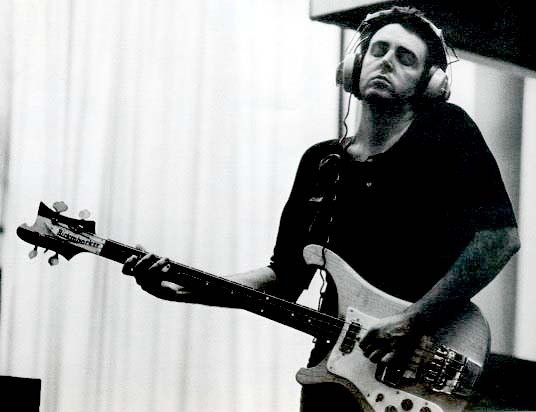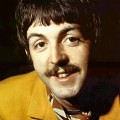- From Faith Current: “The Sacred Ordinary: St. Peter’s Church Hall” - May 1, 2023
- A brief (?) hiatus - April 22, 2023
- Something Happened - March 6, 2023

Sometimes I transport myself
I‘ve been listening to RAM, one of the handful of solo Beatles discs I can listen to (others: All Things Must Pass, POB when I want to reaffirm the value of therapy). For kicks I unearthed this Rolling Stone review from 1971. Justly infamous, Jon Landau’s review of RAM starts off as a pure hatchet-job in the standard “how dare Paul McCartney not be John Lennon” RS style, then ascends to a discussion of how The Beatles were better as a group, an observation that had to be tired even in 1971.
If you sense a little extra acid in my tone, it’s because I think Macca got an incredibly raw deal in the Seventies. Critics resented him because they thought he was corny; and they craved the glory reflected from rock’s still-new status as an art form. (A conceit they owed, in some part, to Paul McCartney. No Macca, no Sgt. Pepper; and no Sgt. Pepper, no Rolling Stone, at least not in the same way. The critics weren’t only too hard on McCartney in the Seventies (and often since), they’ve never given him anywhere near proper credit for helping them give rock music worth — and able to withstand — literate uber-thinky absurdly opinionated criticism.
A thought that struck me as I was reading Landau’s review of RAM: it’s possible that, out of the four of them, McCartney’s development was stunted the most by being in the group. As the most fluent musician, it fell to him to compensate for/counterbalance the others. Yeah, The Beatles were incomparably better as a group, but perhaps the reason that all of them were so spotty as solo artists was because each of their talents had been forced to develop in a complementary way, McCartney’s most of all. Just a thought.





I absolutely agree that most off McCartney’s 70s solo albums were unjustly written off by critics. The idea that his musical development was stunted by the group is interesting — I’ll have to think more about that. He clearly also learned from the others, and from George Martin and Geoff Emerick as well.
I particularly can’t figure out why critics dismissed Paul’s first three solo albums as shallow. “Every Night,” “Maybe I’m Amazed,” “Too Many People,” and “Some People Never Know” are every bit as revealing of their author’s emotional state as “God,” “Well Well Well,” “Jealous Guy,” and “Oh Yoko!”
i was just talking about this with a friend of mine just yesterday – RAM is his favorite Paul solo album, and was listening to it the previous day . . .We agreed that much of Paul’s early and mid-1970s material holds up great . . . I’ve always been a fan of 1970’s “McCartney”, where he plays all the instruments – which adds weight to your theory
Landau is better when writing on almost anything besides rock and roll — movies (he was also RS’s main film critic in the early ’70s, extolling the right-wingeries of Eastwood, Milius et al, but for auteurist more than political reasons), or sports (the first Ali-Frazier fight).
He’s close to zero as a rock critic. His prose lacks humor, style, surprise, absurdity, the least bit of jizz. That combination of Olympian complacency with affected humbleness makes my shorts ride up. Staying true to form as Bruce Springsteen’s producer, he squoze out all the Spector fun and sluiced in the embalming fluid of Social Protest.
“Ram,” meanwhile, has endured.
Interesting thought, Dev. I’ve always admired how Paul *switched to bass* because that’s what was needed.